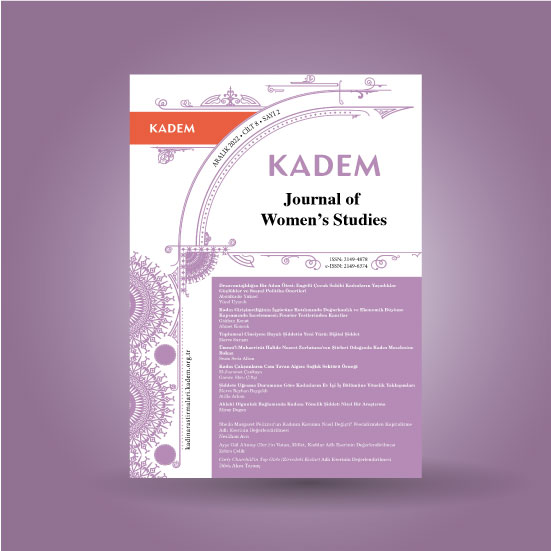Artificial Intelligence Explored as a Path to a Just World for All
The “6th International Women and Justice Summit,” themed “Artificial Intelligence and Women,” organized by the Women and Democracy Foundation (KADEM), continued on November 9 with the participation of expert guests. At the summit held at Haliç University, discussions explored how artificial intelligence could be better utilized not only for women but for all of humanity.
The 6th International Women and Justice Summit, themed “Artificial Intelligence and Women,” organized by the Women and Democracy Foundation (KADEM), commenced on November 8 with an address from President Recep Tayyip Erdoğan Following opening speeches by Minister of Family and Social Services Mahinur Özdemir Göktaş and KADEM Board Chair Assoc. Prof. Dr. Saliha Okur Gümrükçüoğlu, a Leaders’ Session was held with the participation of ministers from various countries.
The second day of the Summit, held on November 9, featured sessions attended by experts and prominent officials.

The session titled “Artificial Intelligence, Knowledge Production, and Algorithms” was moderated by KADEM Academic Advisory Board Member Dr. Ravza Altuntaş Çakır. The distinguished panelists included Mariyah Saifuddin, Founder of Innovative Solution Partners Inc.; Lambert Hogenhout, Chief of Data, Artificial Intelligence, and Responsible Technology at the UN; Prof. Dr. Ömer Faruk Ertuğrul from Batman University; and Assoc. Prof. Dr. Şebnem Özdemir from Istinye University. The discussions highlighted strategies to prevent discrimination caused by artificial intelligence and underscored the importance of curating data sets using reliable resources to ensure fair outcomes for all.


Moderated by Dr. Betül Özel Çiçek, Director of KADEM’s Advocacy and Research Department, the session titled “Artificial Intelligence and Socio-Cultural Codes” featured distinguished panelists, including Independent Cultural Consultant Borbála Csete, Assoc. Prof. Dr. Francesca Alessandra Lisi from Bari Aldo Moro University, Salesforce Executive Karen de Sousa Pesse, and Entrepreneur and Founder of Awaken Your Human Design, Moana Sangeo. The discussion explored how artificial intelligence is reshaping family structures, emphasizing a shift where elders, traditionally regarded as the family’s wisdom keepers, now increasingly rely on younger generations for technology use and verifying information accuracy. The session highlighted the importance of making technology fields more accessible to encourage greater participation by women. It was also noted that many countries are drafting legislation on artificial intelligence technologies, with an emphasis on the value of sharing knowledge, lessons learned, and best practices to promote equitable progress.

The session titled “The Impact of Artificial Intelligence on Women’s Well-Being,” moderated by Assoc. Prof. Dr. Uğur Özdemir, explored the opportunities AI offers for enhancing women’s welfare and the broader implications of women’s employment in AI for both the sector and society. The panel featured DZLP Group Managing Partner and CEO Lisa Brunet, Gender Studies Specialist Lizette Soria, UN Information Center Director Miklos Gaspar, and AI Writer Şule Güner. The discussions focused on how AI can improve women’s quality of life and examined the transformative effects of increasing female participation in the AI workforce.

KADEM Media and Press Board Member Meryem İlayda Atlas moderated the panel titled “Democratic Advocacy and Rights-Based Activism.” The panel featured prominent speakers, including Entrepreneur and Women for Ethical AI Platform Member Ana Prica from UNESCO, Higer Digital Business Executive and VP of Strategic Services Dr. Jess Evans, and Merve Hickok, President of the Center for AI and Digital Policy. The discussion focused on the policies that could be developed to ensure fair and equal participation of women in the production and utilization of artificial intelligence.
The “Ethical Debates and Policy Regulations on Artificial Intelligence” panel, which examined the justice, transparency, and accountability of artificial intelligence, was moderated by Dr. Nursem Keskin Aksay, KADEM Board Member. The panelists included Dr. David Tuffley, Senior Lecturer in Applied Ethics and Cybersecurity at Griffith University, Mia Shah Dand, Social Entrepreneur and Founder of Lighthouse3, and Dr. Nour Naim, Entrepreneur, Founder, and Director of AI Minds Academy. Following their presentations, the speakers responded to questions from the audience.


The “Inspiring Women” session, moderated by Doç. Dr. Nagihan Haliloğlu, a member of the KADEM Academic Advisory Board, featured distinguished guests: Doç. Dr. Chika Yinka-Banjo from Lagos University, Dr. Elena Estavillo, Entrepreneur and CEO of Centro-i, Esra Soylu, Entrepreneur at RoofStacks & GoArt Metaverse, Melina Scotto, Advisory Board Member at Leak Signal, and Zülal Tannur, Founder and CEO of NeuroVision AI Tech and FROM YOUR EYES. During the panel, actionable discussions were held on promoting a more inclusive and equitable artificial intelligence ecosystem for women in the future.
The 6th International Women and Justice Summit by KADEM concluded with the reading of the “Final Statement.”

Israel’s AI-Supported Genocide
At the 6th International Justice and Women Summit, a special session was dedicated to the genocide in Gaza. The event area at Haliç University was set up with a “media zone” for discussions on the topic of “AI-Supported Genocide: Gaza.” In this section, where guests who witnessed the atrocities and worked to amplify the voices of the victims were featured, the following speakers participated: Prof. Dr. Khaled A. Beydoun, a legal scholar, author, and activist known for his work on Islamophobia; documentary photographer and artist Belal Khaled; and Hatice Banu Acar, Digital Channel Coordinator at TRT International News Broadcasting. In the mini-talks organized in this section, participants’ questions were also answered.






